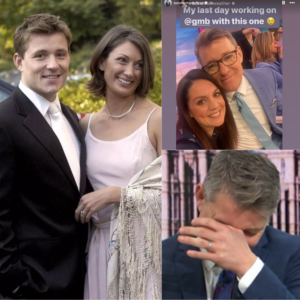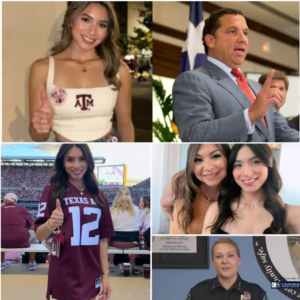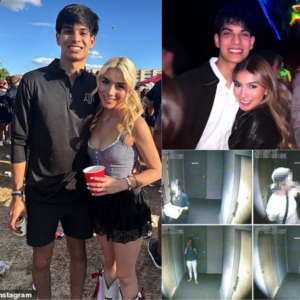The Voice has been a cornerstone of reality television since its debut in 2011, captivating audiences with its unique blind audition format and the dynamic interplay between its coaches. Two standout figures in the show’s history are Michael Bublé, the smooth-talking Canadian crooner, and Blake Shelton, the country music titan who became a household name through the show. Both have left indelible marks as coaches, but the question remains: who is the better coach? To answer this, we’ll examine their coaching styles, success rates, impact on contestants, and overall contributions to The Voice, drawing on their respective tenures and available insights from recent sources.
Background and Entry to The Voice
Blake Shelton was an original coach on The Voice, joining the panel in 2011 alongside Adam Levine, Christina Aguilera, and CeeLo Green. Over his 23-season tenure, Shelton became the show’s most iconic coach, known for his wit, competitive spirit, and ability to mentor talent across genres, though his heart remained rooted in country music. His decision to join was initially hesitant, but he was persuaded by the involvement of high-caliber artists like Aguilera, a decision that led to a transformative 12-year journey on the show.
Michael Bublé, on the other hand, is a relatively new face to the coaching role, debuting in Season 26 (2024) alongside Snoop Dogg, Gwen Stefani, and Reba McEntire. However, Bublé was no stranger to The Voice, having served as an advisor to Shelton’s team in Season 3 (2012). Interestingly, it was Shelton who convinced Bublé to take the coaching chair after years of declining offers, citing the show’s positive environment and talented contestants. Bublé’s entry brought a fresh perspective, blending his jazz-pop charisma with a surprising affinity for country music, as evidenced by his playful reveal of a mullet photo to woo a contestant.
:max_bytes(150000):strip_icc()/blake-shelton-the-voice-111623-3edb9add2c8740eb868e08f5b5f7b820.jpg)
Coaching Style and Approach
Blake Shelton: The Supportive Everyman
Shelton’s coaching style is defined by his relatability and mentorship. Often described as the “every man” of The Voice, he combines humor, self-deprecation, and genuine care for his contestants. His ability to connect with artists on a personal level, regardless of genre, has been a hallmark of his tenure. Shelton’s playful banter, particularly with Adam Levine, added entertainment value, but his real strength lies in his post-show support. He’s known for securing record deals, radio play, and tour opportunities for his artists, even those who didn’t win. For instance, contestants like Cassadee Pope and Danielle Bradbery have credited Shelton for their post-show success, with Pope and Bradbery achieving significant Billboard chart presence.
Shelton’s approach is strategic yet heartfelt. He often pits country artists against each other to ensure only the strongest advance, but he’s equally adept at nurturing non-country talent when they stand out. His willingness to share resources, such as handing over a song written for him to contestant Craig Wayne Boyd, underscores his commitment to his team’s success. Shelton’s record of nine wins in 23 seasons—more than any other coach—speaks to his ability to identify and develop talent, with champions like Jermaine Paul (Season 2), Cassadee Pope (Season 3), and Bryce Leatherwood (Season 22).
Michael Bublé: The Charismatic Newcomer
Bublé brings a different energy to The Voice, characterized by charm, humor, and a self-deprecating wit that echoes Shelton’s style. His coaching debut in Season 26 was marked by immediate success, with his contestant Sofronio Vasquez becoming the first Filipino singer to win the U.S. version of the show. Bublé’s approach is less about industry connections and more about emotional connection and vocal refinement. He draws on his own journey as a young nightclub singer to empathize with contestants, often sharing personal anecdotes to build trust.
Bublé’s playful tactics, such as showing a retro mullet photo to appeal to country contestant Ethan Eckenroad, reveal his willingness to lean into humor to win over artists. His versatility shines through in his ability to coach across genres, from pop to country, despite his jazz-pop roots. Critics have noted similarities to Shelton, with John Legend jokingly calling Bublé a “liar” like Shelton for making bold promises to contestants, such as offering to tattoo a contestant’s name (a promise he likely wouldn’t keep). Yet, Bublé’s sincerity and enthusiasm have endeared him to fans, with his comment that coaching is “the best job I’ve ever had” reflecting his passion for the role.
Success Metrics: Wins and Impact
Shelton’s track record is unmatched, with nine wins across 23 seasons, a testament to his consistency and knack for spotting talent. His winners span a range of styles, from country (Danielle Bradbery, Craig Wayne Boyd) to soul (Jermaine Paul) and pop-rock (Chloe Kohanski). Beyond wins, Shelton’s ability to secure lasting careers for his artists sets him apart. His industry connections and willingness to mentor post-show have resulted in tangible success, with artists like Pope and Bradbery touring with major acts like Tim McGraw and Brad Paisley.
Bublé, in contrast, has coached only two seasons (26 and 27, with Season 28 confirmed for 2025), but his debut was a resounding success. Winning Season 26 with Vasquez marked him as a formidable coach, achieving in one season what took others multiple attempts. His ability to guide Vasquez to victory, despite being a newcomer, suggests a natural aptitude for coaching. In Season 27, Bublé continued to shine, with contestants like Jadyn Cree earning high praise for their “flawless” performances. However, his limited tenure means his long-term impact on contestants’ careers remains less documented than Shelton’s.
Fan and Contestant Reception
Shelton’s 12-year run made him a fan favorite, with viewers drawn to his humor, authenticity, and Oklahoma charm. His departure after Season 23 in 2023 was met with emotional farewells, reflecting his deep connection with audiences and contestants alike. Contestants often chose Shelton for his reputation as a mentor who “looks out for you,” even post-show, as evidenced by his promise to email eliminated contestant Cody Wickline.
Bublé has quickly won over fans with his warmth and humor, with social media buzzing about his reveal that Shelton convinced him to join. His Season 26 victory cemented his credibility, and his return for Seasons 27 and 28 indicates strong fan support. Contestants like Jadyn Cree and Adam David have praised Bublé’s encouragement, with Cree being called a potential winner by Bublé himself. However, his shorter tenure means he hasn’t yet built the same cult-like following as Shelton.
Critical Comparison
Strengths
Shelton: His longevity, industry connections, and proven track record make him a coaching powerhouse. His ability to mentor across genres and secure post-show opportunities is unmatched. His nine wins and consistent presence over 23 seasons demonstrate reliability and expertise.
Bublé: His fresh perspective, emotional intelligence, and vocal expertise make him a compelling coach. His immediate success in Season 26 and ability to connect with contestants on a personal level highlight his potential to become a Voice legend.
Weaknesses
Shelton: His strong bias toward country artists could limit his appeal for non-country contestants. His departure after Season 23 suggests he may have reached a saturation point, potentially diminishing his influence on the show’s future.
Bublé: His limited experience (two seasons compared to Shelton’s 23) means he lacks the same depth of impact. His playful promises, like the tattoo offer, risk being seen as less genuine, though they add entertainment value.
Cultural Impact
Shelton defined The Voice for over a decade, shaping its tone with his humor and competitive spirit. His relationship with Gwen Stefani, whom he met on the show, added a romantic subplot that captivated fans. Bublé, while newer, has brought a global appeal, with his Season 26 win resonating particularly with Filipino audiences due to Vasquez’s victory. His international stardom adds a different dimension to the show’s legacy.
Conclusion: Who Is Better?
Determining the better coach depends on the criteria. If we measure by longevity, wins, and industry impact, Blake Shelton is the clear frontrunner. His nine wins, extensive mentorship, and role as the show’s longest-serving coach make him a titan of The Voice. His ability to turn contestants into stars, even those who didn’t win, sets a high bar. However, Michael Bublé’s meteoric rise, winning his debut season and earning fan adoration, suggests he could rival Shelton’s legacy with time. Bublé’s charisma, vocal expertise, and fresh energy make him a formidable contender, but his shorter tenure limits direct comparison.
For now, Shelton’s proven track record gives him the edge, but Bublé’s rapid success and potential for growth make this a close race. As Bublé continues into Season 28, he may yet close the gap, especially if he maintains his winning streak. Ultimately, both coaches bring unique strengths to The Voice, making the show richer for their contributions.





